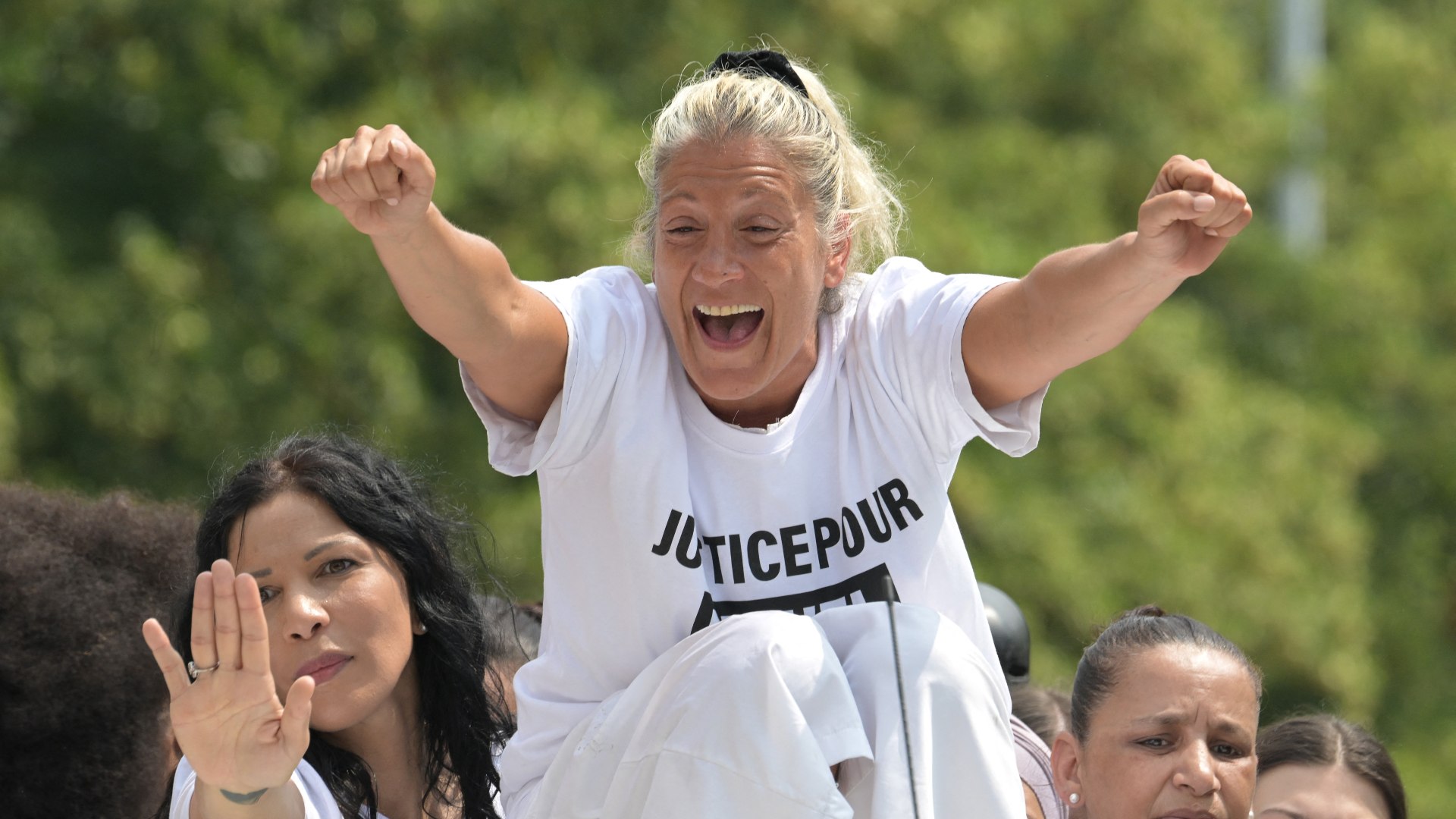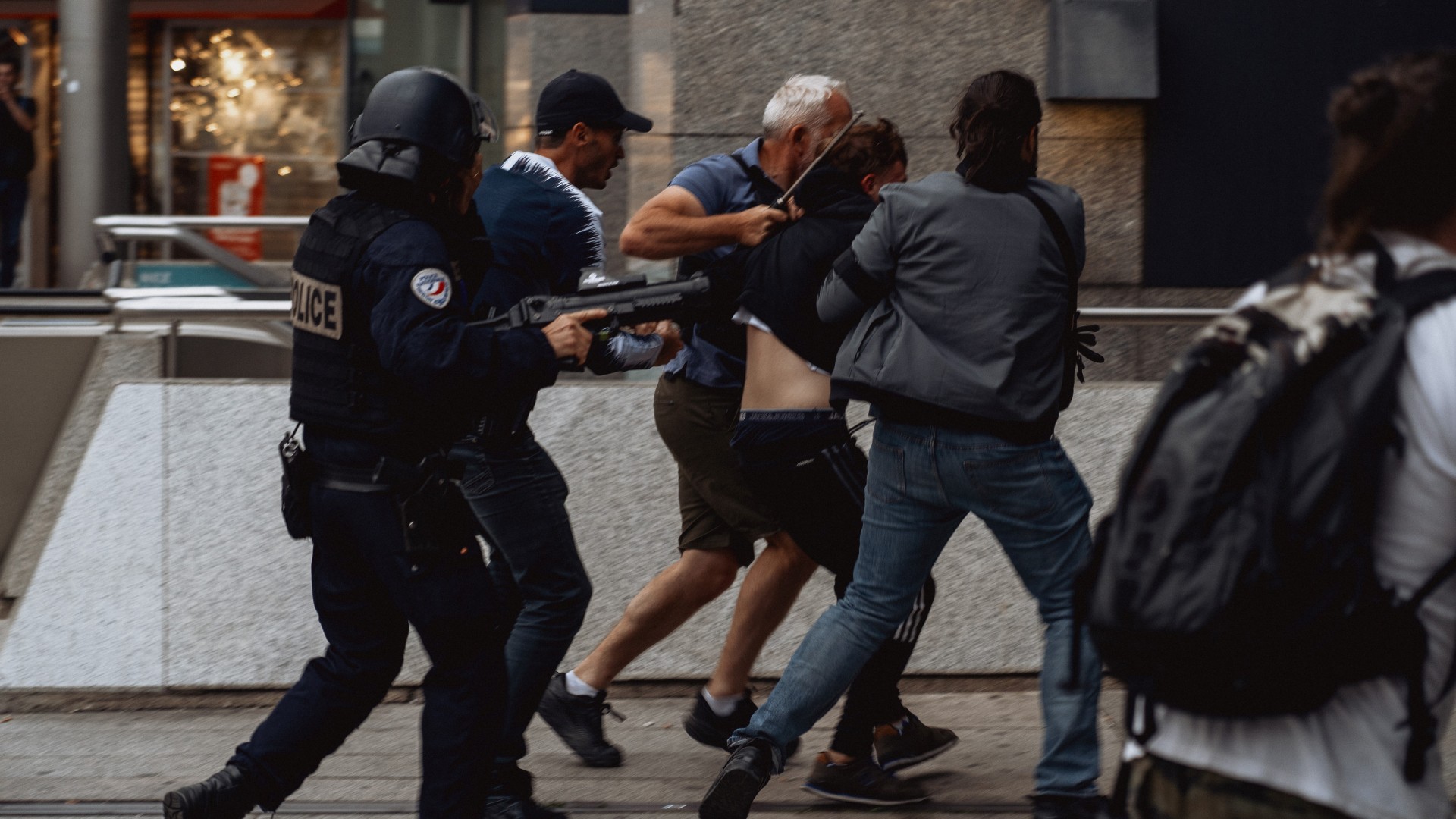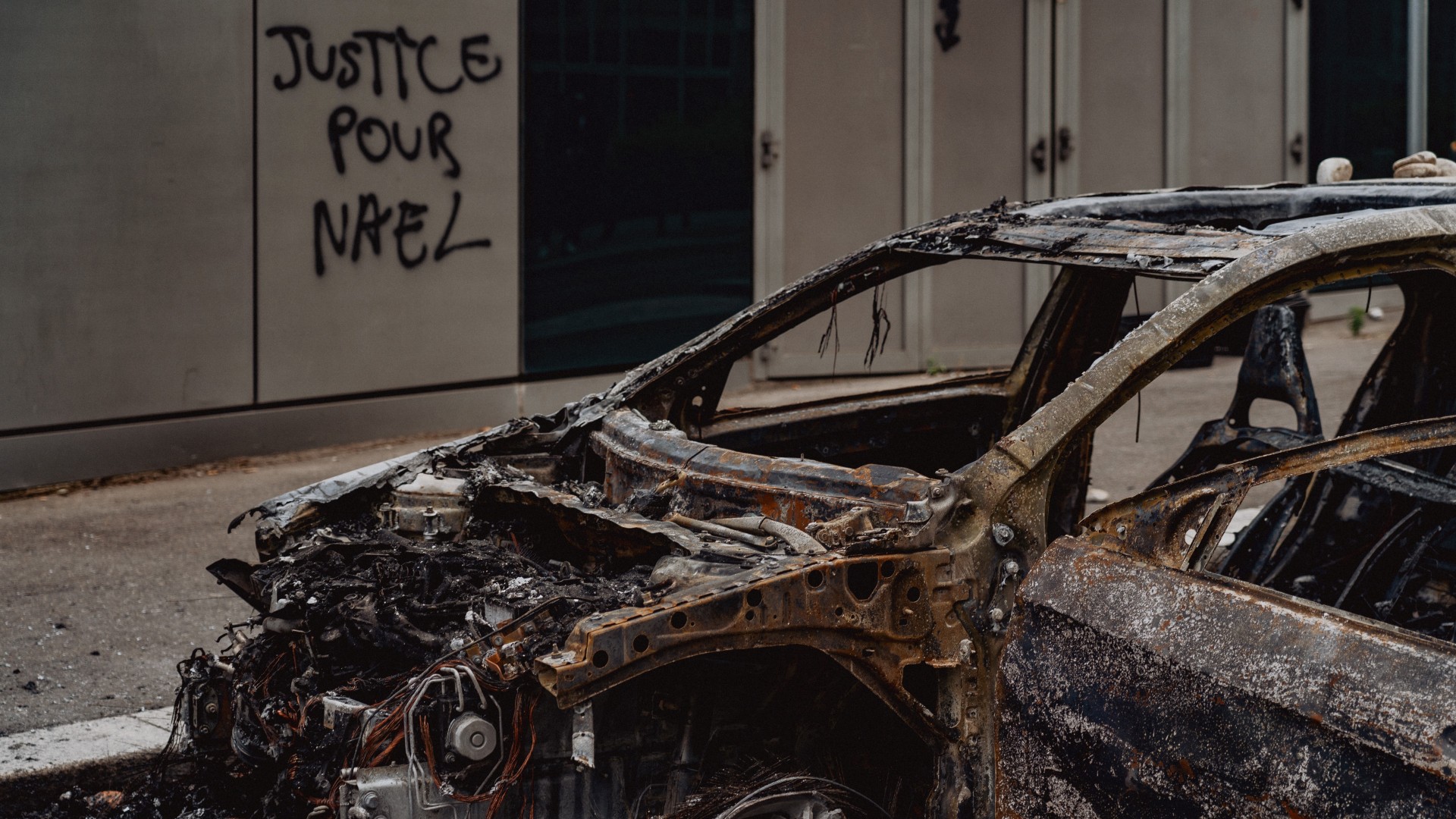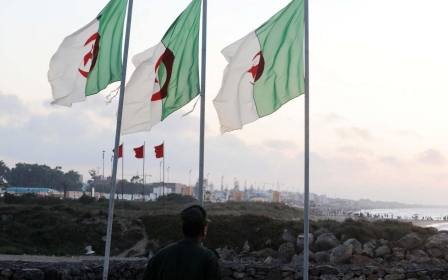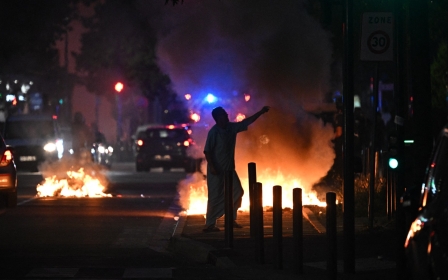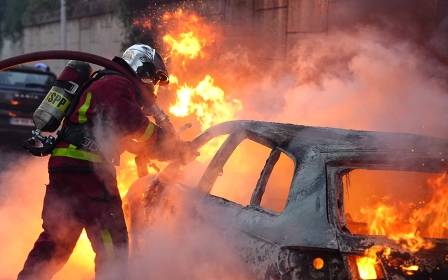France protests: Nanterre’s grieving mothers meet police resistance in Paris
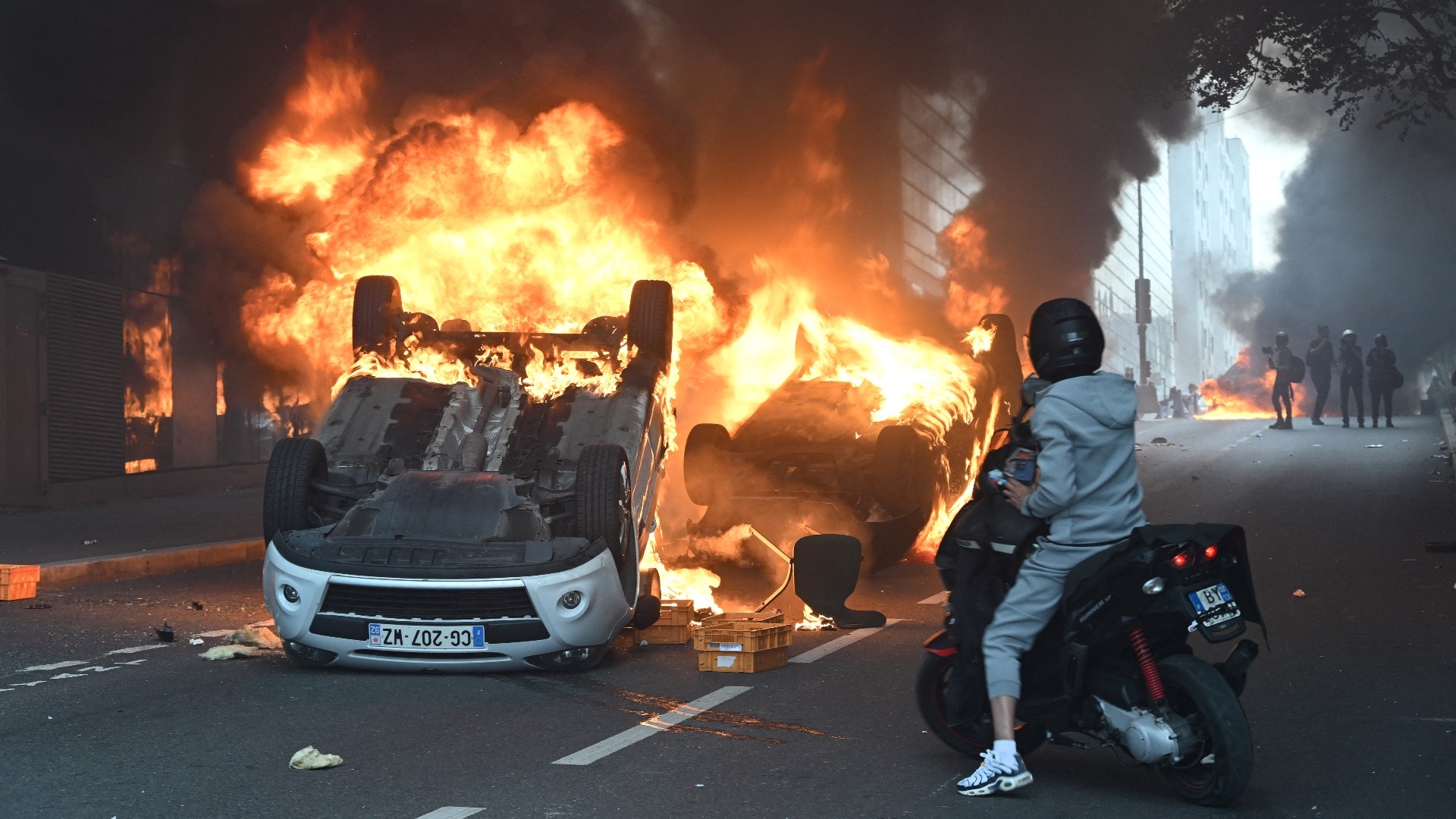
For two hours, she stood on the roof of a white van. Her eyes were swollen with sadness and pain.
Draped in white, Mounia never stopped thanking the huge crowd that had gathered to pay tribute to her 17-year-old son.
Nahel M, a French teen of Algerian and Moroccan descent, was shot dead point blank by a policeman on Tuesday morning during a traffic control incident in the Paris suburb of Nanterre.
The killing has exposed grievances about police brutality and marginalisation in working-class areas of France. It also sparked nights of violent protests across France and increasing confrontations with the police.
On Thursday, a “white march” vigil took place in Nanterre, led by Mounia.
Stay informed with MEE's newsletters
Sign up to get the latest alerts, insights and analysis, starting with Turkey Unpacked
At the head of the procession were many mothers. "Our children are being killed and nobody cares," shouted Karima in anger.
Right next to her was Sarah. She came with her 15-year-old son. "I'm telling you, I'm scared for him now. Do you think it's normal in a country like France for us to be afraid of the police killing our children?”
Many of the teenagers in the procession had been crying. All were wearing T-shirts bearing the words "Justice for Nahel".
According to the police, 6,000 people attended the white march, which was organised by the victim's family. It went ahead smoothly at first.
But at 3.30pm, just as Nahel's mother was appealing for calm, the police used tear gas to disperse the crowd.
In a matter of seconds, the situation escalated, and small groups formed to confront the police. Sitting on some steps away from the crowd, a protester called Ines found it hard to breathe.
"Why are they doing this? Everything was going fine," said the young woman, who is close to Nahel's family.
"The least we can do is try to calm things down. There are children in the procession, it's irresponsible, they shouldn't be surprised if things get out of hand.”
For several hours on Thursday evening, the entire area around the Nanterre police headquarters was the scene of violent clashes between groups of young people and the police. Supermarkets, a bank and estate agent offices were ransacked.
Abdul, 28, set fire to several bins and helped erect barricades in the suburb’s streets.
“I can't stop crying," he told MEE, a mask over his face.
"This morning, I came from Marseille to take part in the march in his honour and the police wouldn't let us finish the rally. I've never taken part in any demonstrations, and I've never been violent, but this is too much."
Calls for calm ignored
President Emmanuel Macron has asked citizens to avoid escalation.
"We need calm everywhere, because we don't need a conflagration," he declared on Wednesday morning.
In working-class neighbourhoods across France, his words went unheeded. On Thursday night, unrest hit areas of Marseille, Lyon, Lille, Toulouse and Pau, as well as Paris.
More than 660 people were arrested and 40,000 police deployed, authorities said. They added that 249 police and gendarmes were injured.
“It’s the police who need to calm down,” said Mohamed Ali, 19. “We’re not going to stop. We want justice for Nahel.”
Last year in France, 13 people were killed after refusing to comply with a roadside control. Most of the victims were young.
The lawyer of the policeman who killed Nahel M said his client was sorry and apologised to the teen's family.
"He is devastated, he doesn't get up in the morning to kill people," the lawyer said. "He didn't want to kill him."
Faced with this uprising in working-class neighbourhoods, right-wing and far-right political parties are calling for a state of emergency to be declared.
"The images of rioting all over France are unbearable," said Eric Ciotti, head of the right-wing Les Republicains party.
For the moment, Macron’s government is ruling out the use of a state of emergency, as France put in place in 2005 after the deaths of two teenagers, Zyed Benna and Bouna Traoré, in the Paris suburb of Clichy sous-Bois.
In France, this measure allows the administrative authorities to impose travel bans and bans on gatherings.
Middle East Eye delivers independent and unrivalled coverage and analysis of the Middle East, North Africa and beyond. To learn more about republishing this content and the associated fees, please fill out this form. More about MEE can be found here.


